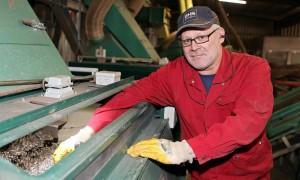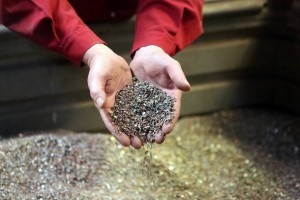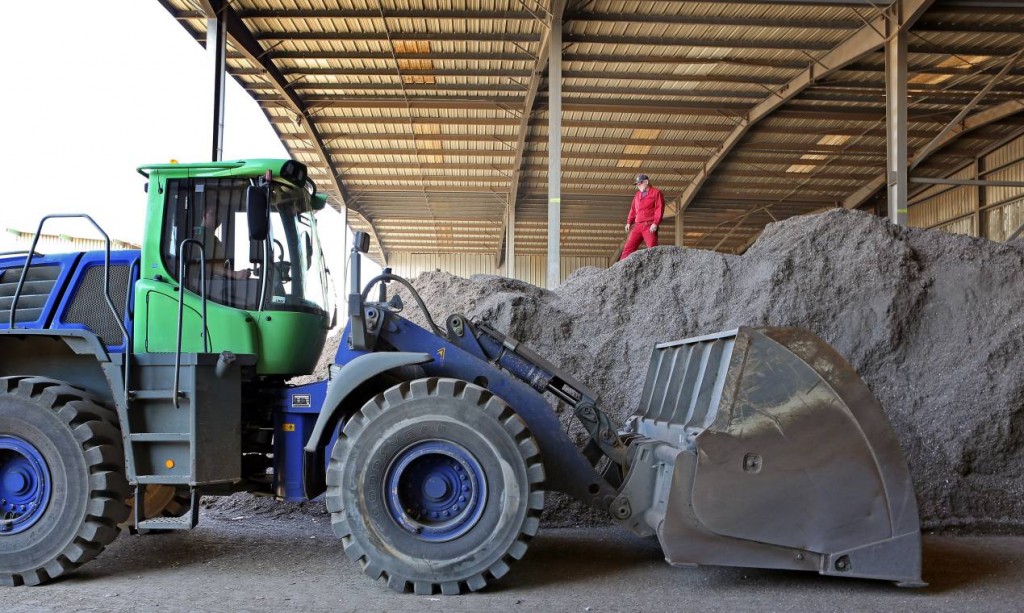Fine Particle Separation (FPS) are the magic words for the separation of small and minute waste particles at METRAN. Underlying this is a lot of work and an award-winning facility.
Until some years ago, we were faced with one unsolved problem in metal recycling above all: the separation of waste components that are smaller than 15 millimeters. METRAN was therefore intensively engaged in the search for a solution to this problem since 1996. It all began with a test plant in a residential building in Leoben – and we did literally stir up a lot of dust there. METRAN CEO Ing Gunther Panowitz remembers the beginnings: “Since the test system had no suction device, we ended up inadvertently enveloping the whole apartment building in a cloud of dust.”
During the test in Leoben, we experimented with a so-called air separation stove. This system allowed us to separate the chaff from the wheat – or, in the case of METRAN , plastics materials and various metals. In doing so, the different densities of the plastics material and the individual metals as well as the friction are taken advantage of. The principle: First, the recycled material is pretreated so that the parts have a similar size. This material is then transported to a vibrating, inclined screen. The controlled vibration ensures that the material is always transported upwards against the tilt of the screen. However, a uniform air flow from below results in material of lower density „taking off“. This material thus loses contact with the screen and is separated downwards on the inclined air cushion. Due to the higher density, the remaining material migrates up to the end of the screen where it is further transported. That is the theory…
Award for Pioneering Work
… In practice, it took a bit of tinkering to develop an optimally functioning machine. In addition, the machine had to be “tailor-made” as the two halls for it were already in place. Not a simple but a worthwhile task – it was in the year 2000, that the first version of the system for fine particle separation – in short FPS – was commissioned. It was the only one of its kind in Austria at that time! Three years later, METRAN won silver at the Austrian Waste Management Phoenix award for this pioneering achievement. Since then, the plant has been rebuilt several times and has been constantly further developed.
 From a Speck of Dust to a One-Cent Coin
From a Speck of Dust to a One-Cent Coin
Today, the FPS plant in Kematen separates recycled material from 0 to 15 millimeters – from a speck of dust to a one-cent coin. These extremely small parts come from shredder material and were initially once built into cars, electrical appliances or electronics parts. Small metal parts are also still obtained in large quantities from material from waste incineration plants or timber processing. Since the recycled material goes through several air ovens, plastic, aluminium, copper, magnesium and other metals and alloys can be separated in the end.
 In shift operation, three employees ensure that the FPS plant separates 20,000 tons of recycled material in mono-fraction purity a year. “Through the separation medium of air you need no further resources and, above all, no chemistry in this process”, METRAN General Manager Panowitz notes as a great advantage of the fine particle separation in Kematen. Even 15 years later, this operation is still continuously being optimized. It will be interesting to see what else the creative minds at METRAN can think up for the separation of the smallest parts.
In shift operation, three employees ensure that the FPS plant separates 20,000 tons of recycled material in mono-fraction purity a year. “Through the separation medium of air you need no further resources and, above all, no chemistry in this process”, METRAN General Manager Panowitz notes as a great advantage of the fine particle separation in Kematen. Even 15 years later, this operation is still continuously being optimized. It will be interesting to see what else the creative minds at METRAN can think up for the separation of the smallest parts.






